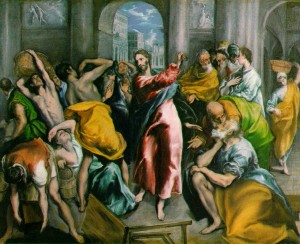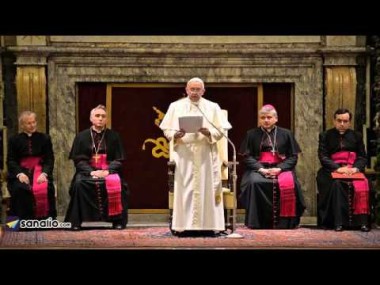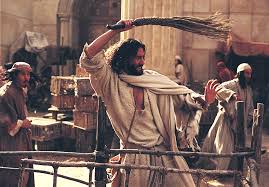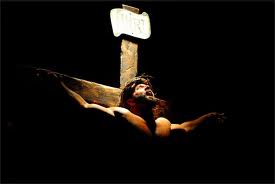
– 03-03-2021 –
Gospel reading: John 2:13-25
vs.13 Just before the Jewish Passover Jesus went up to Jerusalem,
vs.14 and in the Temple he found people selling cattle and sheep and pigeons, and the money changers sitting at their counter there.
V.15 Making a whip out of some cord, he drove them all out of the Temple, cattle and sheep as well, scattered the money changers’ coins, knocked their tables over
Making a whip out of some cord, he drove them all out of the Temple, cattle and sheep as well, scattered the money changers’ coins, knocked their tables over
vs.16 and said to the pigeon sellers,
“Take all this out of here and stop turning my Father’s house into a market.”
vs.17 Then his disciples remembered the words of scripture: “Zeal for your house will devour me.”
vs.18 The Jews intervened and said, “What sign can you show us to justify what you have done?”
vs.19 Jesus answered, “Destroy this sanctuary, and in three days I will raise it up.”
vs.20 The Jews replied, “It has taken forty-six years to build this sanctuary: are you going to raise it up in three days?”
vs.21 But he was speaking of the sanctuary that was his body,
vs.22 and when Jesus rose from the dead, his disciples remembered that he had said this, and they believed the scripture and the words he had said.
vs.23 During his stay in Jerusalem for the Passover many believed in his name when they saw the signs that he gave,
vs.24 but Jesus knew them all and did not trust himself to them;
vs.25 he never needed evidence about any man; he could tell what a man had in him.
***************************************************************
We have four commentators available from whom you may wish to choose . Scroll down to the name of the commentator.
Michel DeVerteuil : Holy Ghost Father, late director of the Centre of Biblical renewal in Trinidad, W.I.
Thomas O’Loughlin: Professor of Hist Theology University of Nottingham NG7 2RD
Sean Goan: Studied scripture in Rome, Jerusalem and Chicago and teachess with the Le Chéile School.
Donal Neary SJ: Editor of The Sacred Heart Messenger and Nat. Director of The Apostleship of Prayer.
****************************************
Michel DeVerteuil
Lectio Divina with the Sunday Gospels
www.columba.ie
Textual comments
This Sunday we have John’s account of the cleansing of the temple. The passage is in two sections:
– verses 13 – 17, the cleansing of the temple by Jesus;
– verses 18 – 25, a discussion between Jesus and the Jews.
Three questions to ask yourself:
1. What are the temples that people turn into market places today?
2. Why is Jesus cleansing these temples?
3. How is he doing it?
John’s approach is different from that of the synoptic gospels. They lay stress on the dishonesty of the vendors – they had come to do business but end up turning the place into “a den of thieves”. John does not speak of this problem at all. His complaint is not against those who profit from their illegal vending. The fault of the vendors is that they have turned the Father’s house into a market, no longer a place of sharing and transparency but one where what a person is worth gets primary importance. They forget what the temple was really about; they see nothing beyond what they have set themselves to achieve.
The person who is intent on cleansing these temples is none other than the man Jesus. We cannot afford to see him as some kind of trouble maker or disturber of the peace – we must recognise and celebrate him for who he is. This is often difficult or even impossible for those of us who are intimately involved in this kind of trade.

Clearing the Temple: 2018 Pope Francis criticised top clergy for lusting after power instead of gospel issues
Today’s story tells us that we can identify the person who sets about correcting this fault because he has the original spirit of the founders. This is what St John calls the “zeal” of Jesus, the inner feeling which makes it difficult for him to accept. We tolerate the profanation of temples very easily; for him it is a situation that he finds totally unacceptable.
Let us look finally at the dialogue between the Jews and Jesus. We see two opposed mentalities. The Jews are concerned with the sanctuary which takes forty-six years to build so that its destruction is a disaster. Jesus is concerned for a different kind of temple – one that can always be rebuilt in three days.
It is only when we have experienced true death and true resurrection that we can understand certain lessons of life. We must now ask ourselves the basic question: how have we ourselves come to this new insight? Has it been for us an experience of death and resurrection?
Scripture Reflection
Lord, there are so many temples that people are turning into market places today:
*children are a sacred trust, but we project our own ambitions and our hurts on them;
*our relationship with our spouse we turn into a battlefield where we make sure
to occupy the higher ground;
* we enter into friendships to get advantages for ourselves;
* the land we see as a source of easy profit;
* the human body we treat as an object of competitions;
* a church community becomes a place for prestige and power.
We thank you for the times you sent Jesus into those temples;
he made a whip out of some cord and drove us out,
scattering our coins and knocking our counting tables over.
We were angry, hurt and confused,
but looking back we now recognise
that it was zeal for your house which devoured you.
Lord, there was a time when we had made our relationship with you
a matter of rewards for good works.
We complained that you let us suffer,
that you left our prayers unanswered,
that others we considered less virtuous than ourselves
were more blessed than we were.
But all the time it was Jesus cleansing your house,
driving away the baggage of the market place,
so that we could come to you in humble adoration and trust.
Lord, forgive us that we are no longer indignant
when sacred places are being violated.
We thank you for those whom zeal for your house has devoured:
– Martin Luther King overturning the segregation counters
in the Southern United States;
– Steve Biko communicating a sense of self worth
to his fellow South Africans;
– labour leaders in the Caribbean and elsewhere who brought dignity to workers;
– those who work for peace in a country torn apart
by long and painful strife; Ukraine, Gaza
– those who saw and made public physical and sexual abuses of our downtrodden women and innocent children
in so many of our church institutions across the world.
– those who opened our blind eyes to so many injustices in out midst.
Lord, we are always fearful of losing what is secondary to your church
– large numbers,
-popularity,
-the patronage of the powerful –
fearful that what has taken forty-six years to build might be destroyed.
As a result we compromise and tolerate and remain passive.
Remind us, Lord, that the only sanctuary that counts
is the body of Jesus, his love,
his solidarity with the poor and the oppressed;
and once we are truly his body in our society,
we can rebuild in three days whatever the earthly powers destroy.
Lord, there are so many deep lessons about life
that we learn from our parents and grandparents,
but it is only after we have passed through resurrection from the dead that we remember what they taught us and we believe the words they spoke.
Lord, be with your church in our moments of success,
when many believe in us because they see signs we give
– our schools and other institutions,
our lively liturgies and our rallies.
Remind us what people have in them,
so that we may not put our trust in their approval
but only in our fidelity to you.
********************************************************
Thomas O’Loughlin
Liturgical Resources for the Year of Matthew
www.columba.ie
 Introduction to the Celebration
Introduction to the Celebration
Lent is a time when we renew our minds and hearts by reflecting on what is revealed to us in Jesus Christ. Jesus is the one who came to do the Father’s will, to establish the new covenant, and who shares his conquest over death with us all.
Homily notes
1. Today we see the value of having a lectionary with fixed readings: this gospel presents so many difficulties –and seems to have always done so – that if we were not required to read it, it is a passage that would be skipped and forgotten. So how can we approach this reading and then elucidate it so that a contemporary community is helped to draw nourishment from it?
(Incidentally, in all likelihood this was the ideal setting that the writer had in mind as the location when his text would be voiced and heard.)
2. By that time there was already a clear distinction between Christians and Jews. The two religions had become separate and there was a widening gulf between them. In this reading ‘the temple’ stands for the Jews, and Jesus represents the new group, the Christians. Yet there is both continuity and discontinuity between the temple and Jesus in this reading, and John knows that his audience must acknowledge this continuity, even if his community have already reached a position when they want to distinguish themselves from the Jews as clearly as possible. Jesus is the one who is in continuity with the temple. The temple is not something alien, different from him, his work, his message. The temple is not something belonging to some ‘Old Testament God’ (to use an expression often heard on the lips of Christians when they think the religious history of Israel is irrelevant to them), but his Father’s house. Moreover, John wants to stress that all the work of Jesus is to be understood in terms of ‘the scriptures’ — a term that refers to what we call the Old Testament. From this perspective, Jesus is the one who purifies and perfects all that has been done in Israel. Jesus is the continuation of what has been revealed by the God of Israel.
 3. Jesus is also the one who, from the perspective of his followers, transcends the temple, and so is in discontinuity with it. The new meeting place between humanity and God is not a building made by human hands with stones, metal, wood, but the living body of Jesus Christ who relates to us in his being a human being and who relates to the Father in his being the Son. Because his living body is the link that reconciles us to the Father, Jesus is the new temple and the final High Priest who connects us, God’s people, with God. His risen body is at once with us when we gather in his name, and radiant in the Father’s house.
3. Jesus is also the one who, from the perspective of his followers, transcends the temple, and so is in discontinuity with it. The new meeting place between humanity and God is not a building made by human hands with stones, metal, wood, but the living body of Jesus Christ who relates to us in his being a human being and who relates to the Father in his being the Son. Because his living body is the link that reconciles us to the Father, Jesus is the new temple and the final High Priest who connects us, God’s people, with God. His risen body is at once with us when we gather in his name, and radiant in the Father’s house.
4. Jesus inherits, perfects, and transforms the whole history of Israel, he endorses the covenant made by God in ‘the law and the prophets‘, yet at the same time he stands in judgement over them and establishes in his death and resurrection the new covenant. It is this paradox of continuity and discontinuity that stands behind many phrases used in modern studies of Jesus, such as ‘Jesus — a marginal Jew.’ This paradox of continuity / discontinuity would have been felt more deeply by an early community than it is felt by us today.
 5. John stresses that the disciples only understood the events in the temple after the events of Easter, when they knew in faith that Jesus was risen, but he was no longer with them. Thus his congregation — or we today for that matter — are not in ‘second position’ compared with those who saw Jesus in the flesh: Jesus is only really known by those who celebrate his death and resurrection. This activity of celebrating the death and resurrection, whether for the community in AD 100 or today, is the sharing of his body as real food and his blood as real drink (see Jn 6:55) in the Eucharist.
5. John stresses that the disciples only understood the events in the temple after the events of Easter, when they knew in faith that Jesus was risen, but he was no longer with them. Thus his congregation — or we today for that matter — are not in ‘second position’ compared with those who saw Jesus in the flesh: Jesus is only really known by those who celebrate his death and resurrection. This activity of celebrating the death and resurrection, whether for the community in AD 100 or today, is the sharing of his body as real food and his blood as real drink (see Jn 6:55) in the Eucharist.
6. Christ, then, is the one who when on earth could know people ‘through and through‘. So now, with the Father, how much more does he know of what each of us is made
***************************************************
Sean Goan
Let the Reader Understand
www.columba.ie
Gospel notes: John 2:13-25
 For the next three Sundays the gospel will be taken from John and will set before us the way in which the fourth evangelist understands the mystery of the cross and resurrection. Of all the evangelists, John relies most heavily on symbolism to communicate the meaning of Easter and what it reveals to us about God and the story for today is no exception. On the face of it what Jesus in cleansing the temple was a rejection of corrupt practices in the temple that distracted from true worship of God. But there is more at stake in his dramatic gesture and this becomes apparent as Jesus responds to the authorities who oppose him. The real issue here is the true worship of God and that will come about through the death and resurrection of Jesus, for as the Word made flesh he is the true temple or dwelling place of God and in him we will come to abide in God’s love, which is what true worship is all about.
For the next three Sundays the gospel will be taken from John and will set before us the way in which the fourth evangelist understands the mystery of the cross and resurrection. Of all the evangelists, John relies most heavily on symbolism to communicate the meaning of Easter and what it reveals to us about God and the story for today is no exception. On the face of it what Jesus in cleansing the temple was a rejection of corrupt practices in the temple that distracted from true worship of God. But there is more at stake in his dramatic gesture and this becomes apparent as Jesus responds to the authorities who oppose him. The real issue here is the true worship of God and that will come about through the death and resurrection of Jesus, for as the Word made flesh he is the true temple or dwelling place of God and in him we will come to abide in God’s love, which is what true worship is all about.
Reflection
With the passage of time and the familiarity of the cross or crucifix as a religious symbol it may be that we have lost the sense of what Paul and John are saying. We almost seem comfortable with the idea of a crucified Lord. Perhaps the scandal it contains would be clearer to us if we used the used the symbol of a gallows or an electric chair. Ever since Good  Friday our faith is not in God the miracle-worker but in the God who chose to be known through weakness and vulnerability. The love of the new and everlasting covenant is to be experienced not in the glorious parting of the Red Sea but in the love and forgiveness offered by Jesus on the cross.
Friday our faith is not in God the miracle-worker but in the God who chose to be known through weakness and vulnerability. The love of the new and everlasting covenant is to be experienced not in the glorious parting of the Red Sea but in the love and forgiveness offered by Jesus on the cross.
The true temple of God is no longer to be found in some holy and far away place but is within, as Jesus has made us all temples of the Holy Spirit and in the process challenges us to know God not through mere ritual observance but ‘in Spirit and in truth’ (Jn 4:23-24).
***********************************************
Donal Neary SJ
Gospel Reflections
www.messenger.ie/bookshop/
God’s building
Why is Jesus angry? – they have missed the point and the religious leaders are allowing this to happen! Religion has come down to ritual, and the centre is missing. Jesus was not much at home in the temple. He went there sometimes, and always caused trouble. The finding in the temple, the words – my body is the temple. Jesus is more at home at the table – the loaves at the lake, the fish on the beach, the last supper in a home. This is where he is most himself.
The falsity of the occasion was the using of the temple to be entrapped by riches. The poor were being overcharged to pay for the materials for sacrifices. This caused the anger of Jesus.

The burning heart of Jesus is the New Temple of God
The temple has disappeared. We are God’s building. If we do not make God’s presence real in our area, then maybe we should knock down the church! Only if God is alive in us all the time, will he be alive in the building. If God is not alive all week in us, God will not be alive on Sunday. If he is not alive in our hearts – well, maybe that’s sometimes why religion can be so boring – it’s religion only from the neck up.
The forty six years are over, and the three days of the rebuilding have been going on for years, in the hearts of all who are faithful to God’s love. The building continues still and we are the living stones.
Think of what is most central to your life.
Is that a concern of God too?
Lord, keep me close to all you love and value in life.
****************************************